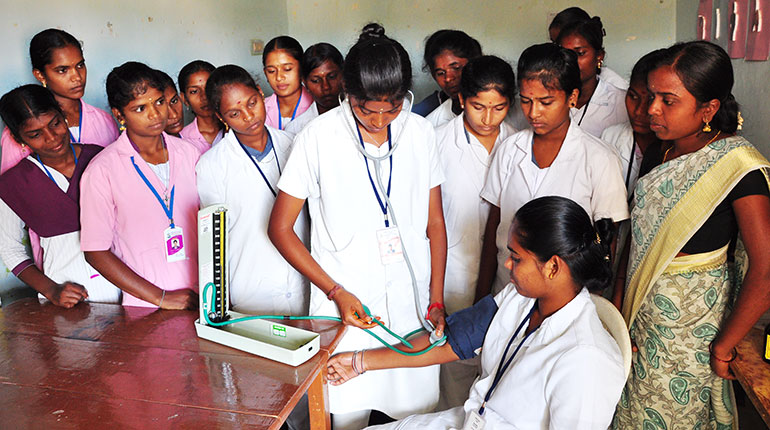Anatomy and Physiology


The Diploma in Medical Lab Technician (MLT) is a vocational course that provides students with the necessary skills and knowledge to work as lab technicians in medical laboratories, hospitals, clinics, research institutes, and other healthcare settings. The duration of the course typically ranges from one to two years, depending on the institution and the specific program.
Course Curriculum:
Anatomy and Physiology
Clinical Pathology
Biochemistry
Microbiology
Hematology
Immunology
Clinical Microscopy
Blood Banking
Laboratory Management and Quality Control
Laboratory Techniques and Procedures
Clinical Training/Internship
Career Opportunities:
Medical Lab Technician: Graduates of Diploma in Medical Lab Technician can work as lab technicians in medical laboratories, performing various diagnostic tests and procedures on patient samples, such as blood, urine, and tissue specimens. They analyze test results, maintain laboratory equipment, and ensure compliance with safety protocols and quality assurance standards.
Hospital Laboratories: There are opportunities to work in hospital laboratories, assisting pathologists and other healthcare professionals in diagnosing and monitoring diseases, infections, and other medical conditions. Medical lab technicians may specialize in areas such as hematology, microbiology, clinical chemistry, or immunology.
Diagnostic Centers: Graduates may work in diagnostic centers or medical clinics, conducting routine and specialized laboratory tests to aid in the diagnosis and treatment of patients. They may perform tests related to blood chemistry, serology, urinalysis, or histology, among others.
Research Institutes: Some graduates may work in research institutes or pharmaceutical companies, assisting scientists and researchers in conducting experiments, analyzing data, and investigating new drugs, treatments, or diagnostic techniques.
Blood Banks: There are opportunities to work in blood banks or transfusion centers, processing and screening blood donations, preparing blood components for transfusion, and ensuring the safe and proper storage of blood products.
Public Health Laboratories: Graduates can work in public health laboratories or government agencies, conducting surveillance, screening, and diagnostic testing for infectious diseases, environmental contaminants, and other public health concerns.
Educational Institutions: Some graduates may pursue teaching or training positions in educational institutions or vocational schools, educating future generations of medical lab technicians and healthcare professionals.
Pharmaceutical Industry: There are opportunities to work in the pharmaceutical industry, conducting quality control testing on pharmaceutical products, monitoring production processes, and ensuring compliance with regulatory standards.
Continuing Education: Graduates may choose to further their education and pursue advanced certifications or degrees in medical laboratory science or related fields, expanding their career opportunities and potential for advancement.